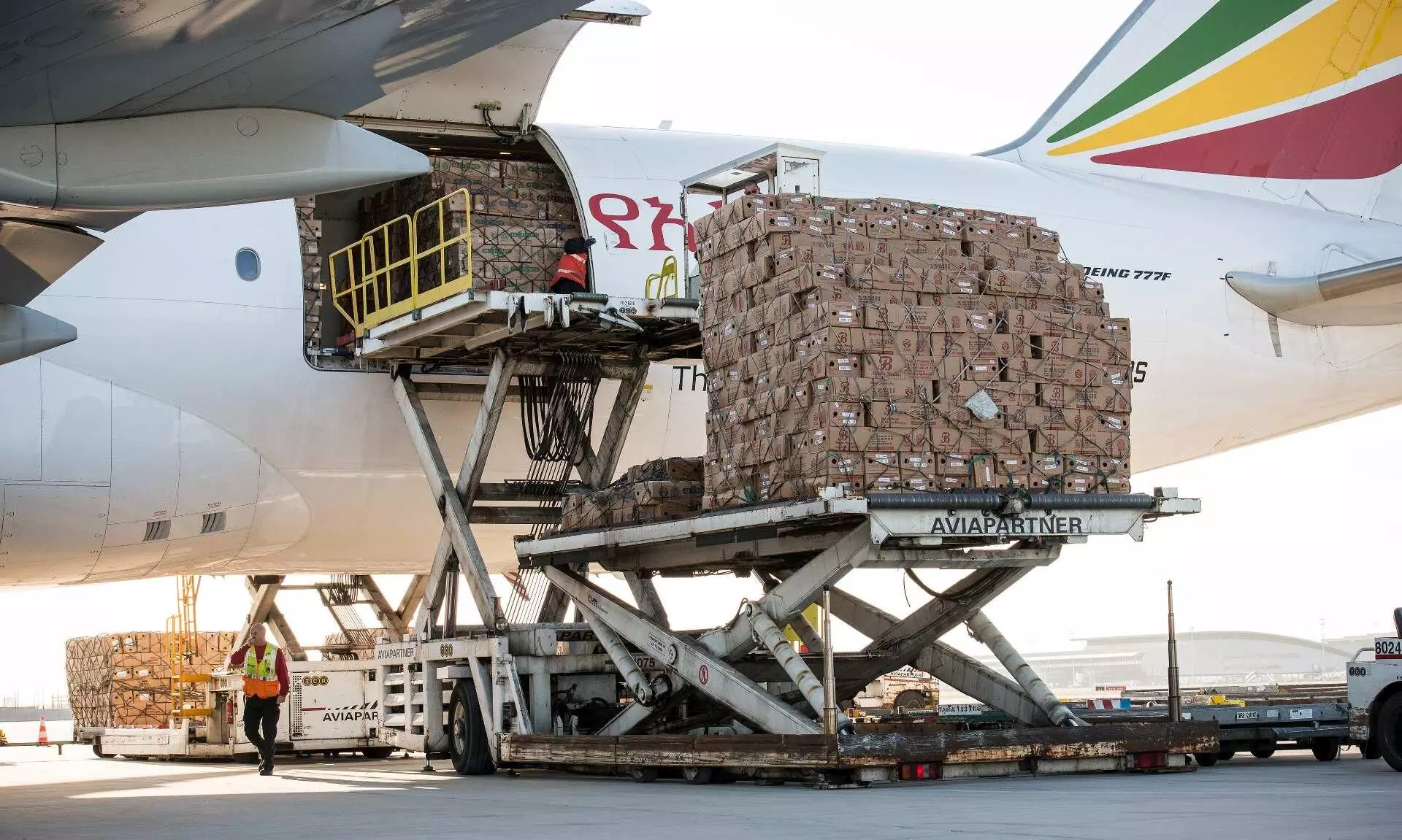
Brussels Airport: Strengthening ties with Africa

Africa’s growing air cargo trade relies on strong global connections, and Brussels Airport is at the centre of it. With expanded routes, specialised handling for perishables and pharma, and a commitment to efficiency, the airport is strengthening its role as Africa’s key gateway to the world.
Brussels Airport has long positioned itself as a key logistics hub in Europe, and its strategic importance in connecting Africa to global markets continues to grow. With a well-established network of airlines, specialised infrastructure for perishables, and a strong commitment to sustainable operations, Brussels Airport is playing a crucial role in enhancing trade between Africa and the rest of the world.
Gateway for African cargo
Brussels Airport serves as a major hub for cargo flights between Africa and Europe, with multiple airlines operating on these routes. “Ethiopian Airlines, Qatar Airways, and DHL provide direct freighter services, while belly capacity through Brussels Airlines has expanded due to its broad network to several African destinations and increased flight frequencies,” says Sam Quintelier, Senior Business & Network Development Manager Cargo at Brussels Airport.
The airport's connectivity with Africa is particularly strong in West and Central Africa, where perishables dominate trade lanes. East Africa, on the other hand, plays a key role in flower exports. With African economies growing and trade volumes increasing, Brussels Airport continues to strengthen its position as a preferred entry point for European and global markets.
In its 2024 cargo numbers report, the airport reported that the primary import regions for the calendar year were Asia, Africa and North America. Africa also ranked third in terms of exports, followed by Asia and North America.
“Brussels Airport is dedicated to supporting African logistics stakeholders through knowledge-sharing, capacity-building initiatives, and cutting-edge logistics solutions.”
Sam Quintelier, Brussels Airport
Pharmaceutical expertise benefiting Africa
As Africa's demand for healthcare products, including vaccines, grows, Brussels Airport’s reputation as a leading European pharma hub is proving invaluable. “Every day, a large volume of pharmaceuticals is shipped to Africa, mainly through Brussels Airlines’ extensive network,” Quintelier notes.
Much of this cargo supports critical humanitarian efforts. “A significant amount of these shipments is for NGO projects, including those from the WHO, Doctors Without Borders (MSF), and others,” he adds. Brussels Airport’s world-class pharmaceutical logistics infrastructure ensures that these time- and temperature-sensitive shipments reach their destinations reliably and efficiently.
Handling perishables with precision
Africa is a major exporter of perishables, from fresh produce to flowers, and Brussels Airport has developed specialised infrastructure to facilitate their efficient handling. “Most handlers at Brussels Airport are equipped with cooling facilities, multiple Border Inspection Points, and the required SOPs to ensure quick transit times,” explains Quintelier.
The airport has also invested in digital solutions to streamline perishable logistics. “The Inspection Management App, an online application via our open data-sharing platform BRUcloud, enhances smooth communication between forwarders and authorities,” he says. This digitalisation ensures real-time visibility and seamless coordination, reducing delays and maintaining the freshness of perishable cargo.
Sustainability in operations
Sustainability is becoming a key priority for the air cargo industry, and Brussels Airport is taking proactive steps to reduce its environmental impact. “We are undertaking a project to overhaul the entire airside-to-landside transfer process, from plane to truck,” Quintelier reveals. This initiative is expected to optimise efficiency while laying the foundation for future sustainable cargo flows.
Expanding routes, expanding opportunities
The expansion of direct flights between Brussels and Africa is set to enhance trade and economic growth across the region. “It will boost trade, enhance tourism, create jobs, and improve regional connectivity, driving stronger economic growth and deepening ties between Europe and Africa,” says Quintelier.
Brussels Airport’s partnerships further reinforce its commitment to Africa. The airport plays a key role in Pharma.Aero, a global network dedicated to improving pharmaceutical air transport, and actively supports the BSMA Africa conference, where it shares its pharmaceutical expertise with African logistics professionals.
Looking ahead
With increasing trade, expanding airline networks, and continuous investments in infrastructure and digital solutions, Brussels Airport is well-positioned to strengthen its role as Africa’s preferred logistics hub. As the industry looks ahead, Quintelier highlights the airport’s commitment to deepening ties with the continent:
“Brussels Airport is dedicated to supporting African logistics stakeholders through knowledge-sharing, capacity-building initiatives, and cutting-edge logistics solutions. We are committed to fostering long-term partnerships that will drive growth and efficiency in African air cargo.”
Brussels Airport’s continued focus on connectivity, innovation, and sustainability makes it an indispensable partner for Africa’s trade and logistics ecosystem.
The article was originally published in the February 2025 issue of The STAT Trade Times.

